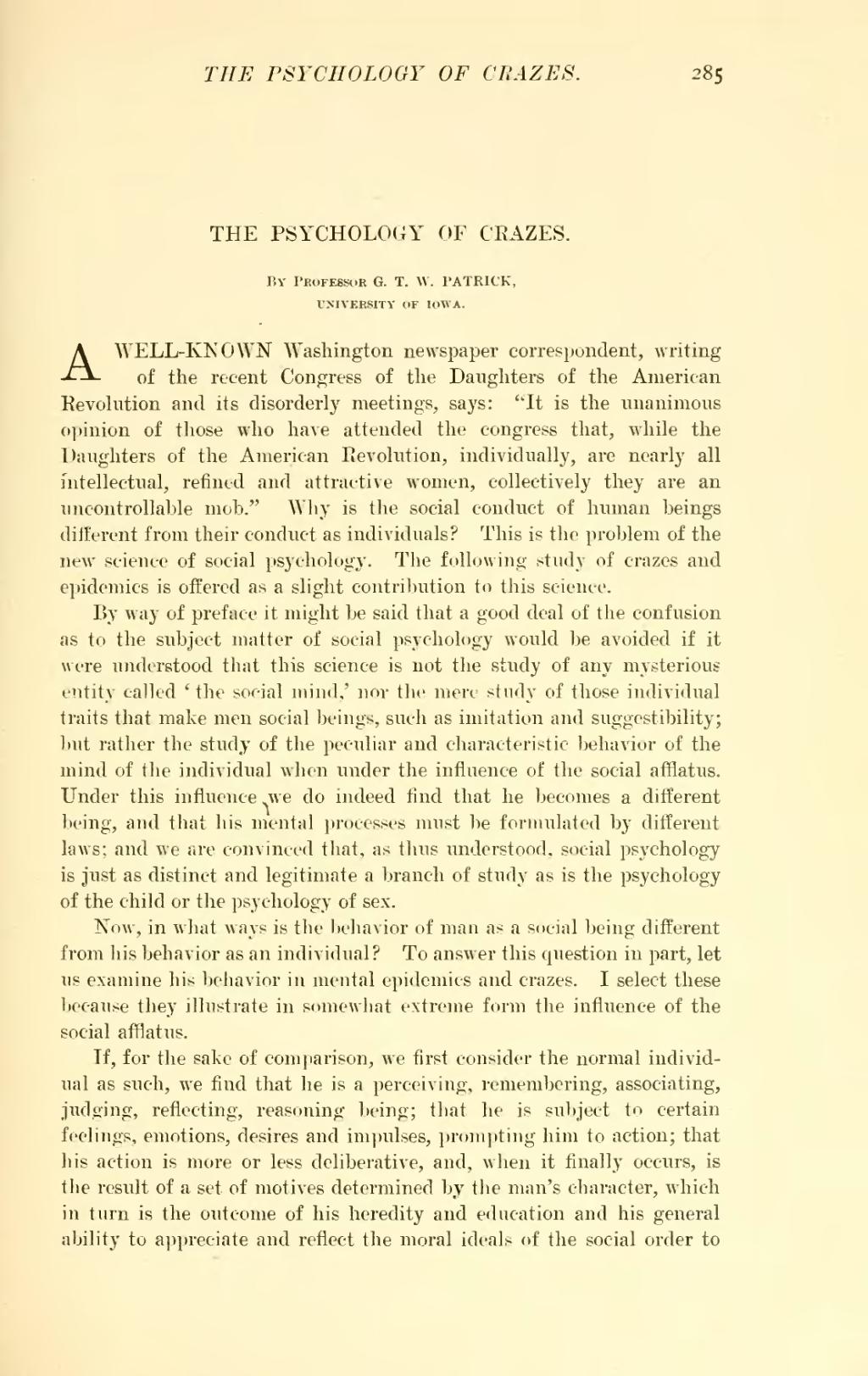| THE PSYCHOLOGY OF CRAZES. |
By Professor G. T. W. PATRICK,
UNIVERSITY OF IOWA.
A WELL-KNOWN Washington newspaper correspondent, writing of the recent Congress of the Daughters of the American Revolution and its disorderly meetings, says: "It is the unanimous opinion of those who have attended the congress that, while the Daughters of the American Revolution, individually, are nearly all intellectual, refined and attractive women, collectively they are an uncontrollable mob." Why is the social conduct of human beings different from their conduct as individuals? This is the problem of the new science of social psychology. The following study of crazes and epidemics is offered as a slight contribution to this science.
By way of preface it might be said that a good deal of the confusion as to the subject matter of social psychology would be avoided if it were understood that this science is not the study of any mysterious entity called £ the social mind,' nor the mere study of those individual traits that make men social beings, such as imitation and suggestibility; but rather the study of the peculiar and characteristic behavior of the mind of the individual when under the influence of the social afflatus. Under this influence we do indeed find that he becomes a different being, and that his mental processes must be formulated by different laws; and we are convinced that, as thus understood, social psychology is just as distinct and legitimate a branch of study as is the psychology of the child or the psychology of sex.
Now, in what ways is the behavior of man as a social being different from his behavior as an individual? To answer this question in part, let us examine his behavior in mental epidemics and crazes. I select these because they illustrate in somewhat extreme form the influence of the social afflatus.
If, for the sake of comparison, we first consider the normal individual as such, we find that he is a perceiving, remembering, associating, judging, reflecting, reasoning being; that he is subject to certain feelings, emotions, desires and impulses, prompting him to action; that his action is more or less deliberative, and, when it finally occurs, is the result of a set of motives determined by the man's character, which in turn is the outcome of his heredity and education and his general ability to appreciate and reflect the moral ideals of the social order to
